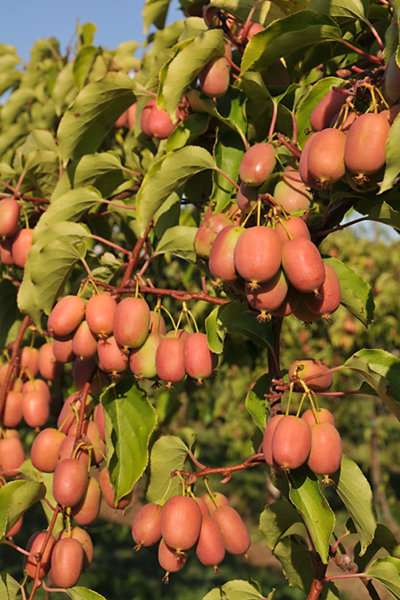
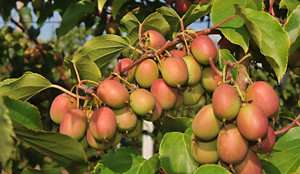
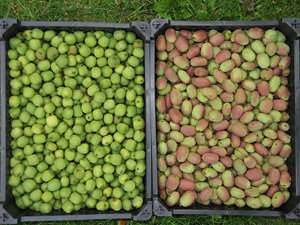
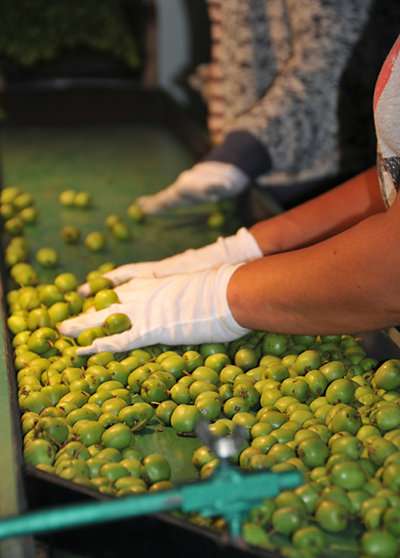
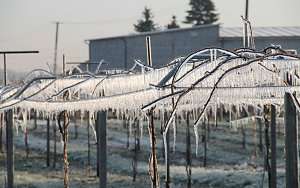
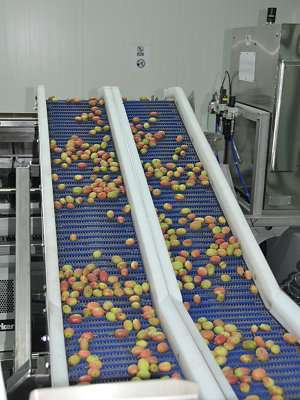

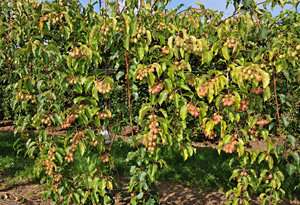
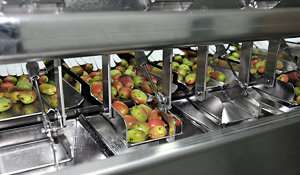
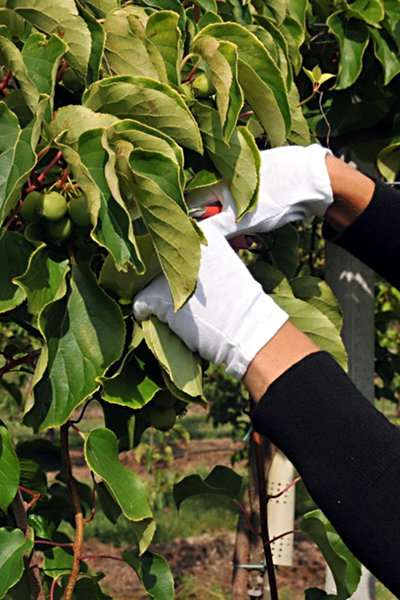
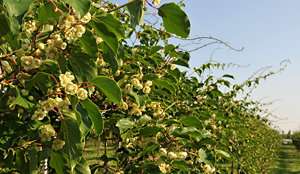


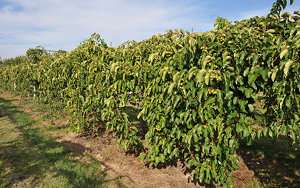
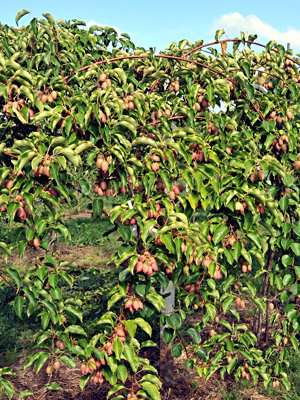
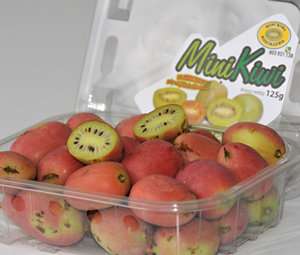

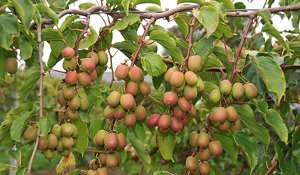
Our plantation is located in Bodzew near Grójec and covers 3 hectares. Most of our bushes were bought in the Clematis Nursery, the rest came from Mr. Piotr Latocha, PhD. The vines were planted in spring 2011. Three cultivars make up the plantation’s core: Weiki , Geneva and Bingo. Apart from that, we grow a few rows of other cultivars in order to test them in our climatic and soil conditions. In addition, we are involved in a joint research project of the Warsaw University of Life Sciences - SGGW, whose aim is to develop commercial growing technology of mini kiwi under Central Poland conditions.
Because Actinidia is a dioecious plant, it is very important to plant male and female plants (here in ratio 1:7). Insufficient number of male plants would result in poor pollination and in consequence a smaller fruit and lower yield. The plantation use a T-shaped trellis for support. Under-crown irrigation system and an anti-frost system was installed.
Our plantation would never arise without the help of dr Piotr Latocha, an researcher at the Warsaw University of Life Sciences -SGGW, a great actinidia enthusiast and promoter. More info on www.aktinidia.pl



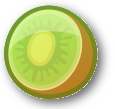
Kiwiberry (Actinidia arguta), also known as hardy kiwifruit, Baby Kiwi or Bower Actinidia is a fast-growing vine with tasty and healthy fruit. Solid trellises are necessary for proper cultivation. It is dioecious, so both male and female vines need to be planted. The area suitable for cultivation should have the lowest possible exposure to late spring frost because young shoots and leaves are extremely sensitive to below-zero temperatures. It is therefore advisable to install an anti-frost system.
The hardy kiwi fruit are strikingly similar to fuzzy kiwifruit (Actinidia deliciosa). However, they are smaller and have a delicate, edible skin. They are exceptionally high in minerals, mostly potassium, calcium, phosphorus, iron, and magnesium. Their vitamin C content is similar or higher than in kiwi –70-400mg/100g. Moreover, the fruit contain also fiber, pectins, and many biologically active compounds with strong antioxidant properties. Fresh hardy kiwi fruit are perfect for regulating your digestive system. Kiwiberry infusion and juice have a great anti-phlegm and analgesic properties. They also support the immune system, regulate blood pressure and the heart. They lower your cholesterol levels and protect against infections. Eating Kiwiberry is particularly recommended during cold and flu, especially for children, breastfeeding women, and the elderly. The fruit are best when fully ripe (soft, or even slightly wrinkled), kept refrigerated. Refrigeration storage time is max. one or two weeks.
Kiwiberry vine is perfect for ecological cultivation because it doesnot require chemical protection.

American cultivar. Green fruit with a slight blush. Average berry weight is 7-12g. They are very tasty, sweet, with a delicate honey flavour. They ripen early, in mid-September.
A cultivar native to Germany. Fruit are up to 3.5 cm long and weigh about 8-10 g. They are dark green, with a clear red and red-brownish blush. Pulp is green, sweet-and-sour, with a nice aroma. This cultivar ripens quite late, in mid-October.
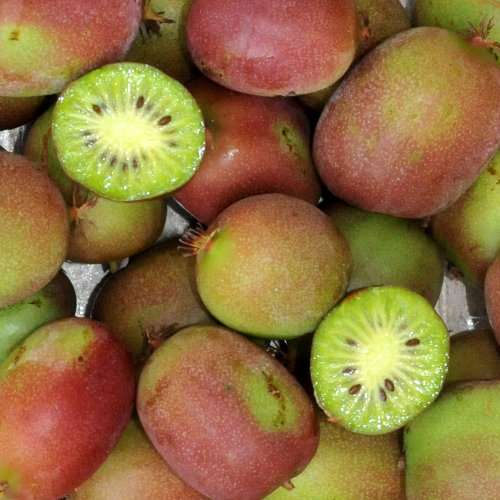

Polish cultivar, obtained in the SGGW in Warsaw by Piotr Latocha, PhD.
It’s a hybrid between A arguta and A purpurea. It grows strongly. The fruit are elongated, a bit flat, with an average weight 8-14g.
Green pulp and attractive rose-red blush. ‘Bingo’ is tested on our plantation for fruit quality and fertility.

We can offer fruits of Geneva, Weiki and Bingo varieties. Only wholesale trade (over 100 kilograms). We can offer possibility of packing in different punnets (from 125 grams up to 4 kilograms). Please contact us earlier – we are not selling "on the spot".
We do not offer plants for sale.
If interested, please contact us via e-mail or contact form.


















Małgorzata i Adam Kostrzewa
05-622 Belsk Duży
BODZEW 16
Email:

Send a message